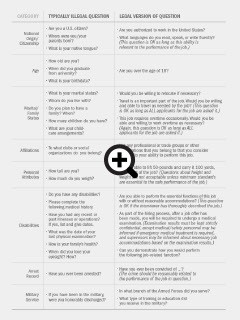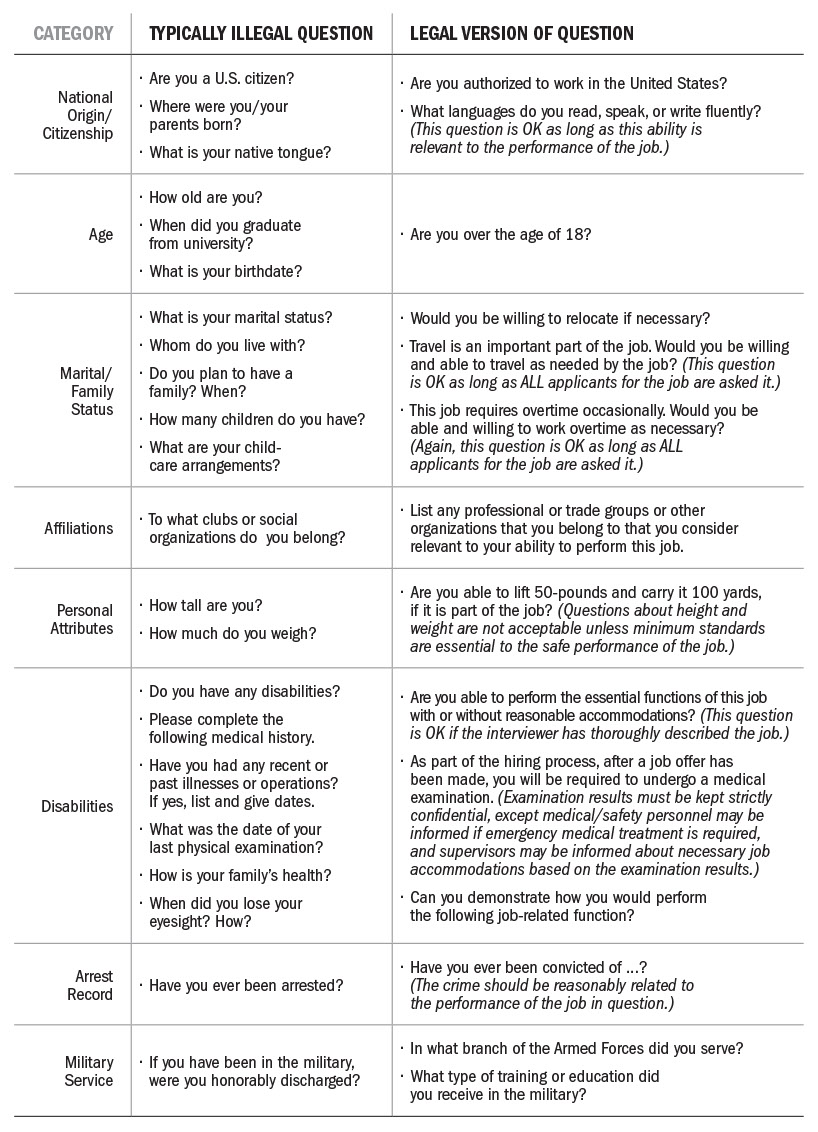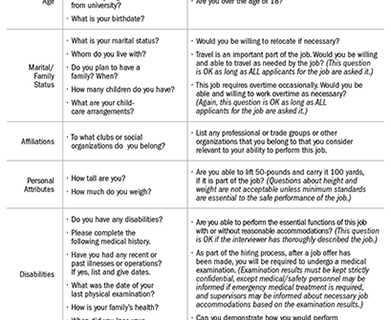The principal is responsible for the fair and ethical treatment of employees. It is important for every principal to be aware of human resource (HR) issues, legal considerations, and employment procedures and policies. Decisions regarding personnel must always be made in consultation with the LCOE.
DOWNLOAD PDF
AFFIRMATION AND SUPPORT OF STAFF
Adventist educators have a heart for students, a passion for sharing Christ, and a commitment to excellence in learning. However, we must not assume that such dedication to the mission of Adventist education will sustain them. Like employees everywhere passion and productivity renews when leaders provide appropriate affirmation and thoughtful care in word and action. Recognizing the contribution of the whole staff as well as individuals can create a team spirit that fosters a positive learning environment. Affirmation is not only a best practice, but can reduce the expense resulting from frequent personnel changes.
CERTIFICATION OF PERSONNEL
All administrative and instructional staff must hold and maintain denominational certification. While certification is the responsibility of each employee, the principal should monitor the certification status to ensure this requirement is met.
Applications for certification can be obtained from the UCOE. Questions regarding certification standards can be answered by consulting the North American Division K-12 Educators’ Certification Manual or the certification registrar at each UCOE.
The principal should become familiar with local state/provincial certification requirements as well. Where state/provincial certification is required, the principal needs to work with the administrative and instructional staff to help them meet this requirement.
There may be other positions at a school for which permits, licenses, and certificates are available or required. These could include secretaries, bus drivers, maintenance personnel, residence hall deans, business office personnel, school nurse, food service director, etc.
JOB DESCRIPTIONS
There should be a job description for each position, whether exempt or nonexempt, at the school. Where these are not present, it is the responsibility of the principal to develop them. The job description should include:
- All academic requirements.
- All physical requirements.
- Benefit package to which the employee is entitled.
- Designation of exempt or nonexempt status.
- Line of authority for the position.
- Procedures for employee evaluation.
- Procedures regarding resignation or employer-initiated termination.
- Responsibilities and expectations.
A prospective employee should be given the job description upon applying for the position. The job description should be used as one tool in the employee evaluation.
PROTOCOL FOR TEACHER RECRUITMENT
Job openings may be posted online. In addition to the NAD Job Opening website some local conferences and unions also post job opportunities.
Informal contacts to ascertain the employment interest of an educator employed at another institution may be made without permission of the current employer. When the employing school is at the point of obtaining formal references or interviewing a prospective employee, the prospective employee’s current administrator or LCOE must be notified. The prospective employer should inquire of the current employer if there is any indebtedness, such as unamortized moving allowance.
If educators respond to a job posting, encourage them to communicate with their current employers regarding this interest inquiry.
REFERENCE CHECKING
Reference checking is crucial. A reference should be solicited from people who have direct knowledge of the candidate’s work habits and character. Supervisors for the past 10 years should also be included. In most cases, the candidate will provide a list of references. These should be contacted in addition to others you know who may help you get a clear picture of the candidate. Referents should be interviewed even if the candidate submits a letter of recommendation from the referent. The LCOE can provide a list of questions to ask.
Each referent should be asked the same list of questions. One question that should be asked of all referents is:
“Has (the candidate) ever been accused of sexual misconduct with a minor?”
The referent’s answer should be written down word for word, as well as the date and the referent’s name and position should also be recorded. An affirmative answer requires further investigation. You should come to closure on any allegation. It may be that the accusation was unjustified and the candidate remains employable.
Additionally, consider asking each referent:
- “Would you hire this individual again?”
- “What is the answer to the question I haven’t asked?”
All reference notes should be kept permanently but separate from personnel files.
INTERVIEWING
When interviewing prospective employees, there are several areas that cannot be discussed at the time of the interview or any time prior to employment. At right is a chart that can be used when interviewing.
There are additional areas that the principal and those conducting the interview might want to consider. These would include:
- Instructional techniques
- Professional background information
- Teacher relationships with colleagues
- Teacher relationships with parents
- Teacher relationships with students
The local conference office of education (LCOE) may have a protocol for interviewing prospective employees.

EMPLOYMENT ISSUES
The principal should be well versed in a variety of employment issues. These may be outlined in the union Education Code and be governed by federal and state/provincial regulations. The principal should regularly consult with the LCOE regarding employment issues. These include such items as:
- Standardized application form
- Employee benefits
- Conditions of employment
- Conflict-of-interest statements for employees
- Background checks for employees and volunteers
- Nondiscrimination policy
- Exempt/nonexempt positions
FACULTY/STAFF HANDBOOK AND ORIENTATION
Handbook
The principal should include all local school policies and procedures in developing a handbook. This document should be reviewed and updated annually. This handbook is to be distributed to all faculty/staff. Some procedures and policies that might be included are:
- Attendance—students and faculty/staff
- Child-abuse and sexual-harassment reporting
- Course outlines/lesson plans
- Departmental budgets
- Faculty committees
- Field trips
- Grades/midterm reports
- Maintenance/custodial
- Payroll calendar and procedures
- Professional expectations
- Purchases/reimbursements
- Schedules for faculty meetings
- School events
- School vehicles
- Social media
- Sponsorship responsibilities
- Student work program
- Substitute teachers
- Supervision
- Technology
- Textbooks
Orientation
The faculty/staff’s success in, and contribution to, the school program is often in direct proportion to the quality of the orientation program. The administration should develop and implement plans for the orientation of new employees. The faculty/staff handbook provides the basis for this orientation.
VACATION
The principal should work with the LCOE to develop a system for monitoring the vacation bank for all 12-month employees. The principal is not to monitor his/her own vacation bank. A vice principal, business manager, administrative assistant, or LCOE superintendent of schools can be designated to do so.
EVALUATION OF PERSONNEL
Information about teacher evaluations can be found in the Leadership chapter (section on Instructional Leadership). The union Education Code will outline the frequency of teacher evaluations.
The principal should also establish and implement a protocol for the evaluation of nonteaching personnel. These evaluations will be useful in assisting employees to do their best work. The evaluations will be useful in determining pay raises, and for potential termination situations.
PERSONNEL FILES
The principal is to maintain a personnel file for each employee. These should be stored in a fire-rated vault. Copies of the following should be in this file:
- Letters of commendations
- Contracts or letters of employment
- All disciplinary actions
- Evaluations
- Letters of reprimand
- Observation notes
- Copies of administrative/instructional certificate(s)
- Job description for the employee’s position
- Other pertinent documents
The personnel file should not be used to store letters of complaint regarding the employee. The principal should review the personnel file annually to be sure it contains only accurate information as outlined above. The principal may choose to maintain for each staff member a “working file” that is not part of the official personnel file. Be aware, however, that this working file can be subpoenaed by the courts.
Personnel files are to be maintained on a permanent basis by the school, even if an employee leaves the school.
INEFFECTIVE TEACHERS
When addressing an ineffective teacher, the following points should be considered:
- Remember that the teacher is an employee of the conference, and collaboration with the LCOE is essential as it may impact employment.
- It is important that the principal is in all classrooms on a regular basis to be aware of potential problems as early as possible. Regular observations and teacher evaluations must be completed.
- When dealing with a teacher having significant problems, be sure the evaluation of ineffectiveness is based on firsthand, objective observations.
- The written evaluations shared with the teachers must include specific reference to areas needing improvement.
- The successful professional development of the teacher should always be the goal.
- In conferencing with the ineffective teacher, address the specific areas that need improvement and lead out in designing a plan that will give the teacher an opportunity to grow.
- Provide constant and regular support and feedback.
- The school has the option of recommending that a teacher be placed on probation. This is a change of status and must be voted by the local school personnel committee and the local conference board of education. The union Education Code will provide guidelines for this action.
GRIEVANCE POLICY
The union Education Code may specify the procedures for grievance that might arise between the organization and the individual employee. The principal should carefully adhere to the terms of the policy should a conflict arise.
EMPLOYEE SERVICE RECORDS
A service record is maintained for each employee, exempt or nonexempt, at the office of the executive secretary of the local conference. It is the responsibility of the principal to ensure that accurate employment information as required is provided to the LCOE in a timely manner.
Five Languages of Appreciation in the Workplace —
Gary Chapman & Paul White
If You Don’t Feed the Teachers, They Eat the Students —
Neila Connons & Jennifer Streams
Affirmation Books
Certification Manual
Job Openings






